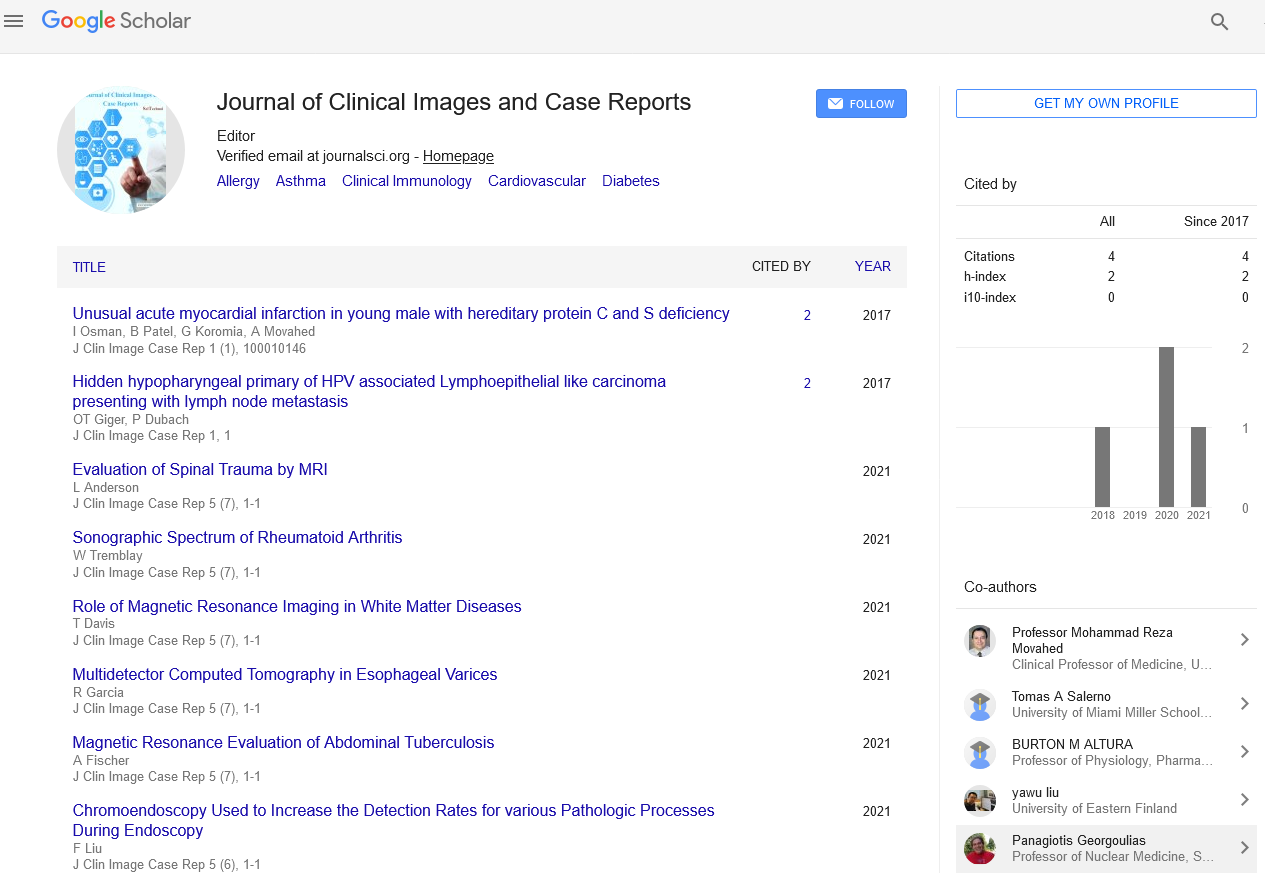Opinion Article, J Clin Image Case Rep Vol: 7 Issue: 3
Cardiomyopathy: Types, Causes, Diagnosis, and Management of a Heart Disorder
Wang Gormlee*
1Department of Cardiovascular, Sungkyunkwan University, Seoul, South Korea
*Corresponding Author: Wang Gormlee,
Department of Cardiovascular,
Sungkyunkwan University, Seoul, South Korea
E-mail: gormlee.w@gmail.com
Received date: 02 June, 2023, Manuscript No. CICR-23-107415;
Editor assigned date: 05 June, 2023, PreQC No. CICR-23-107415 (PQ);
Reviewed date: 19 June, 2023, QC No. CICR-23-107415;
Revised date: 26 June 2023, Manuscript No. CICR-23-107415 (R);
Published date: 06 July, 2023, DOI: 10.4172/CICR.1000252
Citation: Gormlee W (2023) Cardiomyopathy: Types, Causes, Diagnosis, and Management of a Heart Disorder. J Clin Image Case Rep 7:3.
Description
Cardiomyopathy is a heterogeneous group of heart disorders characterized by structural and functional abnormalities of the myocardium, leading to impaired heart function. This condition affects individuals of all age categories and it can have many clinical symptoms.
Cardiomyopathy encompasses different groups of heart disorders that provide significant difficulties in diagnosis and management. Understanding the different types of cardiomyopathy, their underlying causes, and the available diagnostic and therapeutic techniques is essential for providing optimal care and improving outcomes for affected individuals. Further research and advances in the field contain the assurance of more knowledge, prevention, and treatment of this complex and potentially life-threatening heart disorder.
Types of cardiomyopathy
Cardiomyopathy can be wide classified into four main types: Dilated Cardiomyopathy (DCM), Hypertrophic Cardiomyopathy (HCM), Restrictive Cardiomyopathy (RCM), and Arrhythmogenic Right Ventricular Cardiomyopathy (ARVC). Each type has different pathophysiological features.
Dilated cardiomyopathy: Dilated Cardiomyopathy (DCM) is the most common type of cardiomyopathy, characterized by ventricular dilation and impaired contractility. It will explore the etiology of dilated cardiomyopathy, including genetic factors, viral infections, and toxic exposures, and explore its clinical presentation and prognosis.
Hypertrophic cardiomyopathy: Hypertrophic Cardiomyopathy (HCM) is a genetic disorder characterized by Left Ventricular Hypertrophy (LVH) without a cause, resulting in diastolic dysfunction as well as potential arrhythmias. It delves into the genetic basis of HCM, clinical manifestations, and potential complications, such as sudden cardiac death.
Restrictive cardiomyopathy: Restrictive Cardiomyopathy (RCM) is a distinctive form of cardiomyopathy characterized by impaired ventricular filling due to increased myocardial stiffness. It will explore the underlying causes of Restrictive cardiomyopathy, including infiltrative diseases and storage disorders, and its clinical presentation.
Arrhythmogenic right ventricular cardiomyopathy: Arrhythmogenic Right Ventricular Cardiomyopathy (ARVC) is a genetic disorder characterized by fibro fatty replacement of the right ventricular myocardium, leading to arrhythmias and Right Ventricular Dysfunction (RVD). It explores the genetic basis of Arrhythmogenic Right Ventricular Cardiomyopathy, diagnostic criteria, and potential therapeutic techniques.
Causes and risk factors of cardiomyopathy: Cardiomyopathy can have various etiologies, including genetic mutations, infections, autoimmune disorders, and exposure to certain drugs or toxins. It will explore the common causes and risk factors associated with the development of cardiomyopathy.
Pathophysiology of cardiomyopathy: The pathophysiology of cardiomyopathy involves complex cellular and molecular changes in the heart muscle. It delves into the underlying mechanisms leading to myocardial dysfunction and structural changes in each type of cardiomyopathy.
Clinical presentation and diagnostic evaluation: Cardiomyopathy can present with a wide range of symptoms, including dyspnea, fatigue, chest pain, palpitations, and edema. The clinical features of cardiomyopathy and the diagnostic tests used for its evaluation, such as echocardiography, cardiac MRI, and genetic testing.
Management of cardiomyopathy: The management of cardiomyopathy depends on the type and severity of the condition. It explore the current treatment techniques, including medical therapy, lifestyle modifications, device-based therapies, and in some cases, heart transplantation.
Prognosis and future directions of cardiomyopathy: The prognosis of cardiomyopathy varies depending on the type and stage of the disease. The Patients' perspectives for the future with cardiomyopathy and highlight ongoing research and potential future directions in the field of cardiomyopathy management.
 Spanish
Spanish  Chinese
Chinese  Russian
Russian  German
German  French
French  Japanese
Japanese  Portuguese
Portuguese  Hindi
Hindi 